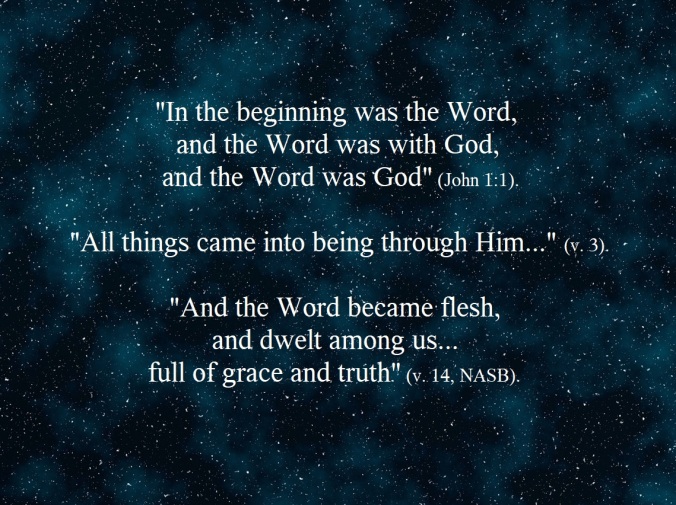“Go therefore and make disciples of all the nations…teaching them to observe all that I commanded you; and lo, I am with you always, even to the end of the age” (Matthew 28:19-20, NASB).
——————–
Contents:
1) Confessing Christ (Tom Edwards)
2) The Power of Influence (David Padfield)
——————–

-1-
Confessing Christ
Tom Edwards
How much more meaningful certain Bible passages can be when they are considered in the light of their context rather than as isolated quotations. For example, the familiar quote of the words of Jesus from Matthew 10:32-33 says, “Therefore everyone who confesses Me before men, I will also confess him before My Father who is in heaven. But whoever denies Me before men, I will also deny him before My Father who is in heaven.”
How often have we heard that passage without even taking into consideration the context for why the Lord declared such?
We sometimes view a detached verse of the Bible from the perspective of our own present-day situations, those familiar conditions that we relate to. Therefore, in thinking of confessing Christ in our time — and here in Waycross, Georgia — is one thing; but in the context of which the Lord made that statement, He is referring to a much different circumstance.
In the context, the Lord shows what times would be like during that early period, and the ordeals that some Christians would be up against. Notice, for instance, in the previous verses of that chapter, His instruction to His twelve apostles when sending them out to preach: “But beware of men, for they will hand you over to the courts and scourge you in their synagogues; and you will even be brought before governors and kings for My sake, as a testimony to them and to the Gentiles. … Brother will betray brother to death, and a father his child; and children will rise up against parents and cause them to be put to death. You will be hated by all because of My name, but it is the one who has endured to the end who will be saved” (Matt. 10:17-22).
To help His disciples face such persecutions and even martyrdom, the Lord then tells them, “Do not fear those who kill the body but are unable to kill the soul; but rather fear Him who is able to destroy both soul and body in hell” (v. 28).
His followers could, therefore, draw comfort in knowing that the most important part of them – their eternal soul – could not be destroyed nor harmed by the foe.
And the Lord continues with His encouraging words to help strengthen the disciples: “Are not two sparrows sold for a cent? And yet not one of them will fall to the ground apart from your Father. But the very hairs of your head are all numbered. So do not fear; you are more valuable than many sparrows” (vv. 29-31). We should be comforted in knowing how well God knows us — and even in the smallest details of our lives — and that to Him, we are worth something.
It was after Jesus told His apostles, “So do not fear; you are more valuable than many sparrows,” that He then went on to say: “Therefore everyone who confesses Me before men, I will also confess him before My Father who is in heaven. But whoever denies Me before men, I will also deny him before My Father who is in heaven” (Matt. 10:32-33).
So we are seeing in this a connection of confessing one’s faith in Christ with persecution and even death. For acknowledging or denying the Lord could make a great deal of difference in how the Christian would be treated by the world — since there were times in which confessing faith in Christ would lead to not only death, but also a torturous one, while denying the Lord could save one’s physical life at the cost of one’s soul.
Even while Jesus was on earth, some were not willing to admit their belief in Him, due to what that could lead to. For example: “Nevertheless many even of the rulers believed in Him, but because of the Pharisees they were not confessing Him, for fear that they would be put out of the synagogue; for they loved the approval of men rather than the approval of God” (John 12:42-43).
Also, when the parents of the blind man whom Jesus healed were questioned concerning their son’s healing, they would not answer because “they were afraid of the Jews; for the Jews had already agreed that if anyone confessed Him to be Christ, he was to be put out of the synagogue” (Jn. 9:22).
The persecution, of course, became much worse than merely being put out of the synagogue. It sometimes involved scourging; imprisonment; loss of property; and, as mentioned above, even a torturous death (cf. Acts 8:1-4; Acts 22:4-5; Acts 26:9-11). Numerous examples of persecution are recorded in the New Testament. Soon after the church was established, the cruel treatment upon the Christians was first inflicted by the Jews. Later, during Nero’s reign in A.D. 64, following the great fire of Rome, Christians were persecuted and put to death in that city. And when under the rule of Domitian, who reigned from A.D. 81 to 96, Roman persecution was even worse in having become more extensive, beyond the boundaries of Rome.
In metaphorically describing how bad the persecution had been in Smyrna (a city in Asia Minor), Jesus states, “Do not fear what you are about to suffer. Behold, the devil is about to cast some of you into prison, so that you will be tested, and you will have tribulation for ten days. Be faithful until death, and I will give you the crown of life” (Rev. 2:10). The King James Version renders “until” in this passage as “unto,” which better expresses the willingness on the part of the Christian to remain faithful to the Lord even if it resulted in death! Satan, of course, was not literally the jailer in that city of Smyrna; but the evil that was being inflicted upon the Christians, through persecution, was by those who, in a manner of speaking, were in league with the devil and his opposition to the gospel, though they probably had no idea they were acting as his servants.
Similarly, in addressing the church at Pergamum, Jesus says, “I know where you dwell, where Satan’s throne is; and you hold fast to My name, and did not deny My faith even in the days of Antipas, My witness, My faithful one, who was killed among you, where Satan dwells” (Rev. 2:13). Again, Satan did not actually have a physical throne there; but the Lord is figuratively indicating just how given over that city was to the opposition of the gospel and the persecution toward those Christians who would strive to obey the Lord. How much more wickedly could a city be described than being one where Satan has his throne to rule over others?
Even in our times and in some places of the world, we are hearing more and more of people being persecuted and even put to death for simply believing in the Deity of Jesus. Such atrocities have been inflicted by those who are ignorant of the gospel of Jesus Christ, or do not believe it, or simply refuse to submit to it. But they will all give an account before God in the great Judgment Day.
Let us continue to pray for the world that all will come to know the saving message of the gospel. That all will believe it, love it, and submit to it, that we may all strive to do our part in making the world a better place and showing our love to God and one another, and that His peace may abound.
May we each be encouraged by all those, down through time, who continued to confess their faith in Christ — regardless of the difficulties, the persecutions, and even the loss of their own physical lives that it led to — and be motivated to do likewise in acknowledging the Lord Jesus Christ by our words and by our actions!
(All Scriptures are from the NASB, unless otherwise indicated.)
——————–

-2-
The Power of Influence
David Padfield
Webster defines the word influence as “the power of persons or things to affect others, seen only in its effects.” Though the word influence is only found one time in the King James Version, its meaning is on every page.
In the Sermon on the Mount, Jesus tells his disciples that they are the “salt of the earth” (Matt. 5:13-16). There are many interesting things you can say about this figure of speech. Salt is totally worthless while sitting on a shelf, it has to be applied. Salt can also lose its saltiness. When it loses its power to flavor, it is good for nothing and must be discarded.
Paul told the brethren at Corinth they were an “epistle of Christ known and read by all men” (2 Cor. 3:1-3). Whether we like it or not, every Christian is an advertisement for Christ. It is rather scary to think the honor of Christ is in the hands of his disciples. Men of the world will judge Christ by the character of his followers.
Have you ever considered what type of an advertisement you are? One of our songs suggests that…
“We are the only Bible the careless world will read,
We are the sinners gospel, we are the scoffers’ creed,
We are the Lord’s last message, given in deed and word,
What if the type is crooked? What if the print is blurred?”
The majority of worldly people will pay very little attention to what we say, but our actions will always be scrutinized. When they think of our character and reputation, our actions will speak louder than our words.
— Via the bulletin of the Collegevue church of Christ, November 12, 2017
——————–
The Steps That Lead to Eternal Salvation
1) Hear the gospel, for that is how faith comes (Rom. 10:17; John 20:30,31).
2) Believe in the deity of Christ (John 8:24; John 3:18).
3) Repent of sins (Luke 13:5; Acts 17:30).
4) Confess faith in Christ (Rom. 10:9,10; Acts 8:36-38).
5) Be baptized in water for the remission of sins (Mark 16:16; Acts 2:38; 22:16; Rom. 6:3,4; Gal. 3:26,27; 1 Pet. 3:21).
6) Continue in the faith, living for the Lord; for, if not, salvation can be lost (Heb. 10:36-39; Rev. 2:10; 2 Pet. 2:20-22).
——————–
Tebeau Street
CHURCH OF CHRIST
1402 Tebeau Street, Waycross, GA 31501
Sunday services: 9:00 a.m. (Bible class); 10 a.m. & 5 p.m. (worship)
Wednesday: 7 p.m. (Bible class)
evangelist/editor: Tom Edwards (912) 281-9917
Tom@ThomasTEdwards.com
http://thomastedwards.com/go (Older version of Gospel Observer website without pictures, but back to March 1990)
http://tebeaustreetchurchofchrist.org/
http://ThomasTEdwards.com/audioser.html (audio sermons)




